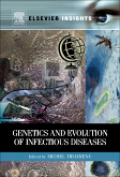
This multidisciplinary book is at the crossroads between two major scientificfields of the 21st century: evolutionary biology and infectious diseases. Thegenomic revolution has upset modern biology and has revolutionized our approach to ancient disciplines such as evolutionary studies. In particular, this revolution is profoundly changing our view on genetically driven human phenotypic diversity, and this is especially true in disease genetic susceptibility. Infectious diseases are indisputably the major challenge of medicine. When looking globally they are the number one killer of humans and therefore the main selective pressure exerted on our species. Even in industrial countries, infectious diseases are now far less under control than 20 years ago. The first part of this book covers the main features and applications of modern technologies in the study of infectious diseases. The second part provides detailed information on a number of the key infectious diseases such as malaria, SARS, avian flu, HIV, tuberculosis, nosocomial infections) and a few other pathogens that will be taken as examples to illustrate the power of modern technologies and the value of evolutionary approaches. Takes an integrated approach to infectiousdiseases Includes contributions from leading authorities Provides the latest developments in the field
- ISBN: 978-0-12-384890-1
- Editorial: Elsevier Science
- Encuadernacion: Cartoné
- Páginas: 778
- Fecha Publicación: 16/12/2010
- Nº Volúmenes: 1
- Idioma: Inglés
